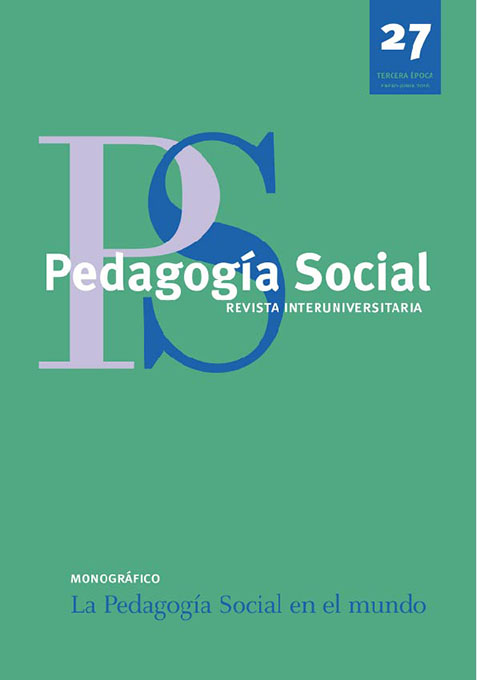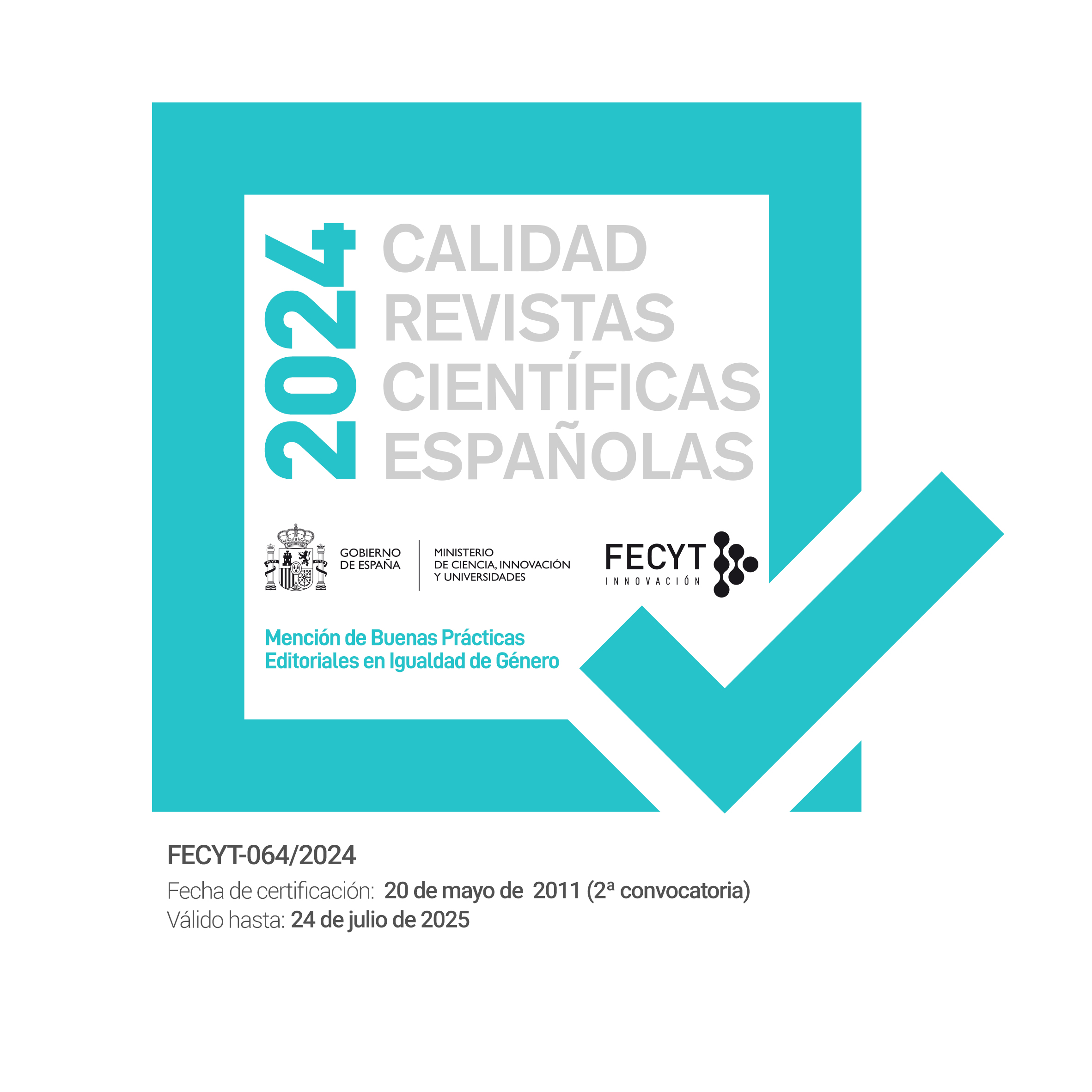Social Pedagogy in the UK today: findings from evaluations of training and development initiatives
DOI:
https://doi.org/10.7179/PSRI_2016.27.10Keywords:
Social Pedagogy, children’s services, evaluation, UKAbstract
Since 2007, workplace based social pedagogic intervention has been taking place in the UK. Until that point, social pedagogy was largely unknown within children’s services practice or training. This paper synthesises findings from 10 evaluation studies that examined social pedagogic intervention in the form of training and development activity in children’s residential care, foster care and related services. The findings are presented in relation to four types of impact: on the ‘trainees’; on the learning organisation; on children; and on the wider context. Findings are positive across all four types of impact, but especially so in relation to ‘trainees’ and children. Social pedagogy appears to validate and reframe practice as reflective, relational and enjoyable which helps children to thrive in public care settings. One key factor in the positive impact of social pedagogy training may be the experiential learning style adopted by trainers.
Downloads
References
Berridge, D, Biehal, N., Lutman, E., Henry, L., & Palomares, M. (2011). Raising the bar? Evaluation of the Social
Pedagogy Pilot Programme in residential children’s homes, Research Report DFE-RR148
Bengtsson, E., Chamberlain, C., Crimmens, D., & Stanley, J. (2008). Introducing social pedagogy into resi- dential child care in England: An evaluation. London: Social Education Trust and National Children’s Bu- reau/National Centre for Excellent in Residential Child Care.
Boddy, J., Statham, J., McQuail, S., Petrie, P. & Owen, C. (2008). Working at the ‘edges’ of care? European mod- els of support for young people and families Final Report, Thomas Coram Research Unit Institute of Edu- cation, University of London
Cameron, C. (2011). Social Pedagogy: What Questions Can We Ask About Its Value and Effectiveness? Chil- dren Australia. 36, 4, 187–198
Cameron, C., & Moss, P. (Eds.) (2011). Social pedagogy and working with children and young people: Where
care and education meet. London: Jessica Kingsley Publishers.
Cameron, C., Petrie, P., Wigfall, V., Kleipoedszus, S., & Jasper, A. (2011). Final Report of the Social Pedagogy pilot programme: development and implementation, Thomas Coram Research Unit Institute of Education University of London
Cameron, C. (2007). New Ways of Educating: Pedagogy and Children’s Services, Thomas Coram Research
Unit, Institute of Education University of London
Cameron, C., McQuail, S., & Petrie, P. (2007). Implementing the social pedagogic approach for workforce training and education in England: a preliminary study. Institute of Education, University of London, London.
Courtioux, M., Davies Jones, H., Jones, J., Kalcher, W., Steinhauser, H., & Tuggerer, H. (eds) (1986) The Social
Pedagogue in Europe: Living with others as a profession. Zurich: FICE.
Cross, S., Hubbard, A. & Munro, E. (2010). Reclaiming Social Work: London Borough of Hackney Children and Young People’s Services. Retrieved from http://www.safeguardingchildrenea.co.uk/wp-content/up- loads/2013/08/Eileen-Munro-Review-of-the-Hackney-Model.pdf
Davies Jones, H. (1994). Social workers, or social educators? The international context for developing social care, National Institute for Social Work international centre paper.
Department for Education and Skills (DfES) (2007). Care Matters: Time for change (Cm 7137) The Stationery
Office.
Eichsteller, G., & Holthoff, S. (2011). Conceptual foundations of social pedagogy: A transnational perspective from Germany. In C. Cameron & P. Moss (Eds.) Social pedagogy and working with children and young people: Where care and education meet. London: Jessica Kingsley Publishers.
Eichsteller, G., & Holthoff, S. (2007). Building a Pedagogic Workforce in Residential Child Care, Retrieved from http://www.thempra.org.uk/downloads/NCERCC_report.pdf (20 February 2015)
Eichsteller, G., & Holthoff, S. (2012). The Art of being a Social Pedagogue: Practice examples of cultural change in children’s homes in Essex, Retrieved ftom http://www.thempra.org.uk/downloads/Essex_Report_2012.pdf, (20 February 2015).
European Commission Childcare Network. (1996). Review of services for young Children in the European Community. Brussels: European Commission Equal Opportunities Unit.
Ferguson, I. (2008). Reclaiming Social Work: Challenging Neo-liberalism and Promoting Social Justice. Lon- don, Sage
Goldstein, H., & Woodhouse, G. (2000). School effectiveness research and educational policy. Oxford Review of Education, 26(3–4)
Kornbeck, J. & Jensen, N. R. (Eds.). (2009). The Diversity of Social Pedagogy in Europe. Bremen: Europaeis- cher Hochschulverlag.
Lorenz, W. (2008). Paradigms and politics: Understanding methods paradigms in an historical context: The case of social pedagogy. British Journal of Social Work, 38, 625–644.
McDermid, S., Trivedi, H., Holmes, L., & Boddy, J. (2014). Evaluation of the Head, Heart, Hands Programme: Introducing social pedagogy into UK foster care: Interim Report, unpublished, University of Loughborough
Meijvogel, R., & Petrie, P. (1996). School age childcare in the European Union: A survey, European Commission Network on Childcare and Other Measures to Reconcile Employment and Family Responsibilities of Men and Women. London.
Milligan, I. (2009). Introducing social pedagogy into Scottish residential child care: An evaluation of the Sycamore
Services social pedagogy training programme. Glasgow, Scotland: Scottish Institute for Residential Child
Care.
Moore, N., Jakhara, M., Bowie, J., & Marriott, J. (2013). Social Pedagogy: A scoping project for Derbyshire
County Council, International Centre for Guidance Studies (iCeGS). University of Derby
Paget, B., Eagle, G., & Citarella, V. (2007). Social Pedagogy and the Young People’s Workforce, A Report for the Department for Education and Skills, Social Care, Children’s Services and Management Associates
CPEA Ltd
Petrie, P. (2013). Social Pedagogy in the UK: Gaining a firm foothold? Education Policy Analysis Archives, 21, 37, Retrieved from http://epaa.asu.edu/ojs/article/viewFile/1339/1104
Roberts, H. (2000). What works in reducing inequalities in child health? – Summary. Retrieved from http://www. barnardos.org.uk/wwhealth.pdf
Roesch-Marsh, A., Cooper, S., & Kirkwood, S. (2015). Social Pedagogy Pilot Project Evaluation Report. Edin- burgh: University of Edinburgh. Retrieved from http://www.camphillscotland.org.uk/media/66289/cam- phill_final_version.pdf
Shaw, I., & Bryderup. I. (2008). Visions for social work research. In I. Bryderup (Ed.), Evidence based and knowl- edge based social work. Danish School of Education. Aarhus University Press.
Smith, M., & Whyte, B. (2008). Social education and social pedagogy: reclaiming a Scottish tradition in social work. European Journal of Social Work, vol 11, no 1, 15-28.
Skinner, K., & Smith, M. (2013). Evaluation of Early Adopters SP Project in Suffolk County Council 2012-13, University of Edinburgh
Skinner, K., & Smith, M. (forthcoming). Evaluation of Camphill Glencraig Tearmann Project, University of Ed- inburgh
Stevens, I. (2010). Social Pedagogy and its links to Holding the Space, Action for Children, Retrieved from https://www.actionforchildren.org.uk/media/52170/holding_the_space_and_its_links_to_social_pedagogy.pdf (February 2015)
Vrouwenfelder, E. (2013). Contextualising the findings - the Orkney Social Pedagogy Evaluation Scottish. Journal of Residential Child Care, 12, 2
Downloads
Published
How to Cite
Issue
Section
License
Copyright (c) 2015 Pedagogia Social. Revista Interuniversitaria

This work is licensed under a Creative Commons Attribution-NonCommercial 3.0 Unported License.
Copyright and right to archive
The published version of the articles can be self-archived by their authors in open access institutional and thematic repositories. However, Pedagogía Social. Revista Interuniversitaria must authorize partial or global reutilisation on new papers or publications.
Published papers must be cited including the title of the journal Pedagogía Social. Revista Interuniversitaria, issue, pages and year of publication
Ethical responsibilities
Pedagogía Social. Revista Interuniversitaria does not accept any material that has been previously published in other documents or publications. Authors are responsible for obtaining the required permissions for partial or global reproduction any material from other publications, and to correctly quote its origin.
Pedagogía Social. Revista Interuniversitaria is obliged to detect and report fraudulent practices.
Only those who have intellectually contribute to the development of the paper must appear as authors.
The journal expects authors to declare any commercial partnership that might entail a conflict of interest with respect to the submitted article.
Authors must mention in the article, preferably in the “methodology” section, that the procedures used during the samplings and controls have been made after getting informed consent.
The journal will not use any received contribution in a way other than the goals described in these guidelines.
Copyright Notice
© Pedagogía Social. Revista Interuniversitaria. Papers published in both the printed and online versions of this Journal are property of Pedagogia Social. Revista Interuniversitaria, being required to cite the source in any partial or total reproduction.
Unless otherwise stated, all content of this electronic journal is distributed under "Creative Commons Attribution-Non commercial 3.0 Spain" (CC-by-nc) license for use and distribution. The informative version and the legal text of this license is available here. This has to be expressly stated in this way when necessary.






